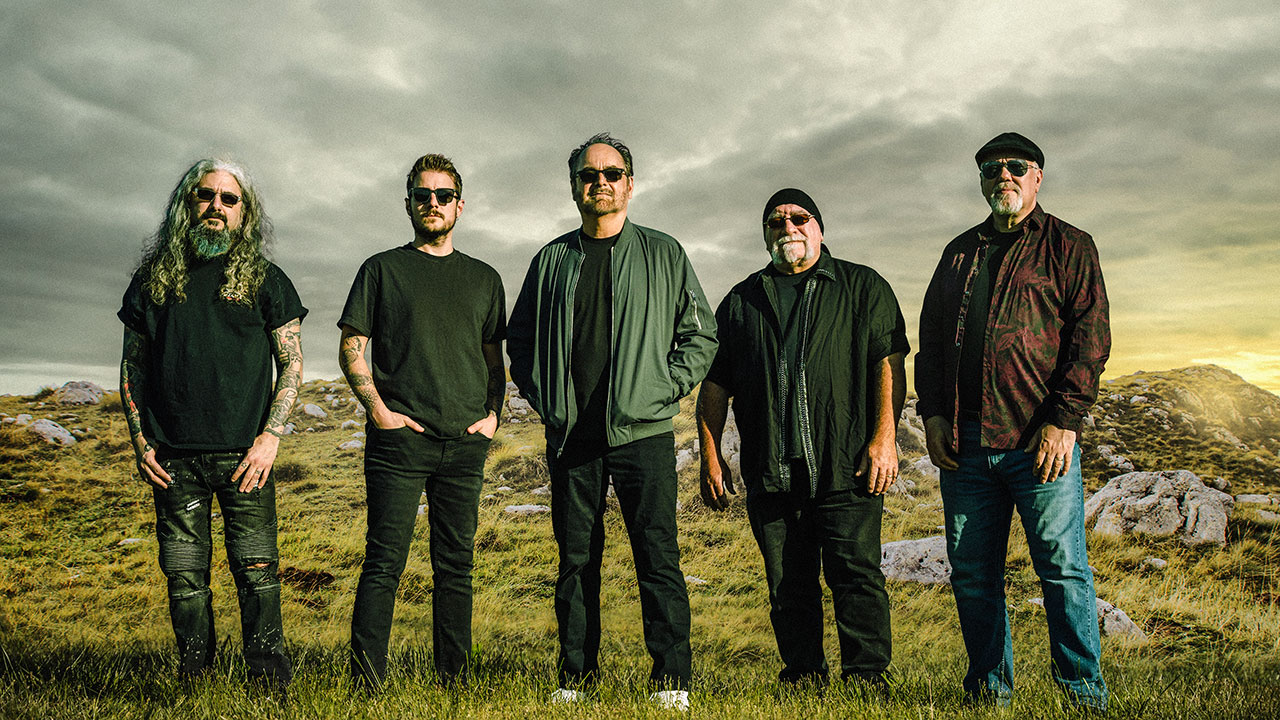“I had a meltdown. Cocaine psychosis took over – it’s a form of paranoid schizophrenia”: How Deep Purple split from Ritchie Blackmore and made a funky masterpiece in Come Taste The Band
Ritchie Blackmore was out, US hotshot Tommy Bolin was in and Deep Purple’s Mk IV line-up were about to make the most under-rated album of their career
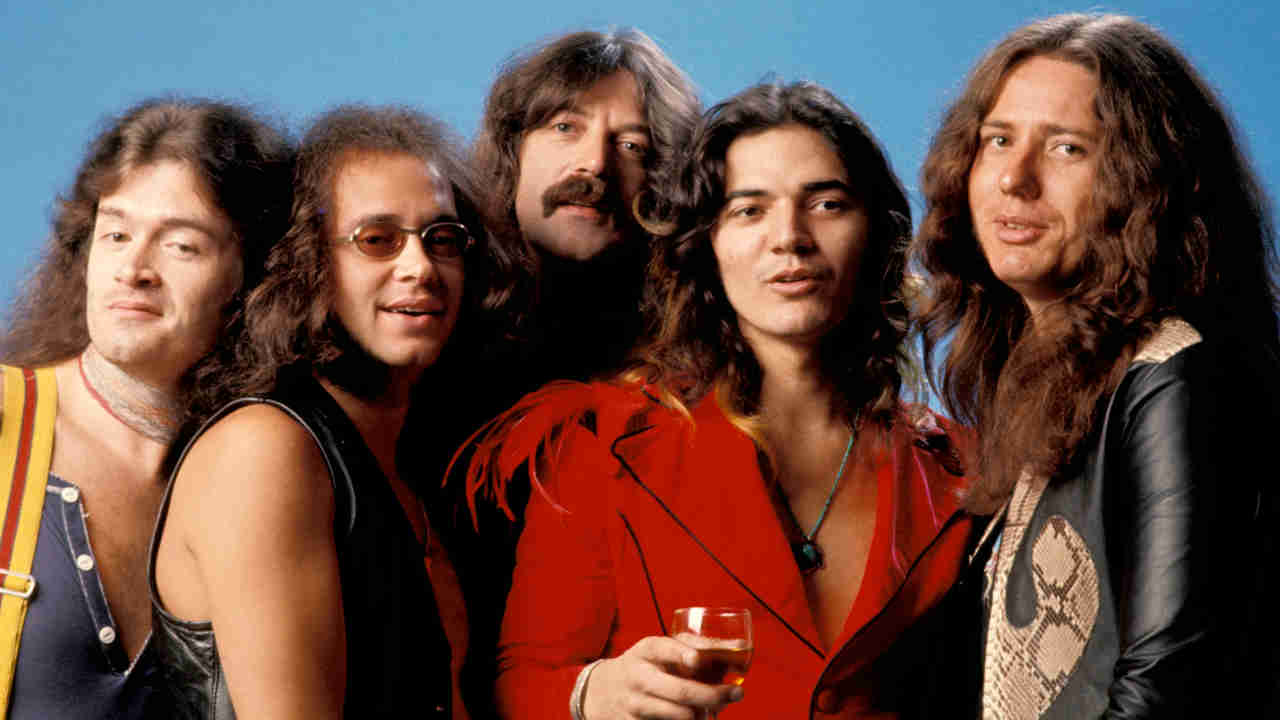
Select the newsletters you’d like to receive. Then, add your email to sign up.
You are now subscribed
Your newsletter sign-up was successful
Want to add more newsletters?
Released in November 1975, Deep Purple’s Come Taste The Band album was their only album to feature American guitarist Tommy Bolin, who replaced Ritchie Blackmore to create the Mk IV line-up. For years, its funkier style meant it remained an outlier in the Purple catalogue, but today it’s held up as a classic. In 2010, singer David Coverdale, bassist Glenn Hughes and late keyboard player Jon Lord looked back on the making of a Deep Purple record like no other – and the tragedy of the man who was part of it.

It was a hot Hollywood afternoon in June 1975 when a tall, bright stranger in geisha boots strode into town.
“He had green, orange and yellow hair,” Glenn Hughes recalls, “and he was wearing these strange Japanese platform sandals, about four inches high. Coming from the dark, broody, mischievous prankster that was Ritchie Blackmore, to having this hippie in glam pants… it was completely the opposite.”
“He looked great; he had this Native American look about him,” Jon Lord remembers. “He walked in and said simply: ‘Hey, guys!’ Tremendously hail-brother-well-met in that laid-back Californian way. He had an astonishingly attractive Asian woman in tow. She was resplendent in a short fishnet dress with nothing on underneath. It took me a very long time to concentrate on the Hammond. I had other organs in mind.”
“He had on green chiffon pantaloons, like something out of Aladdin,” David Coverdale chuckles. “He was visually more exotic and flamboyant than anything I was expecting. A beautiful-looking boy.”
Two months prior to the arrival of this strutting mystery man, on April 7, the Mk III version of Deep Purple had played their last ever gig with Ritchie Blackmore at the Palais des Sports in Paris. The guitarist’s departure had come as no surprise. The remaining members of Purple – frontman Coverdale, bassist/vocalist Hughes, keyboard player Lord and drummer Ian Paice – had known of the Man In Black’s disgruntlement with the band’s musical direction for some time.
Hughes: “We’d been told Ritchie was going to leave on the American tour back in February. It wasn’t a shock because after [1974 album] Stormbringer he sort of took his foot off the gas. I was more concerned about what we were going to do next. I mean, how can you replace that guy? How can you replace Jimmy in Zeppelin? You can’t, really. It’s impossible.”
Sign up below to get the latest from Classic Rock, plus exclusive special offers, direct to your inbox!
Coverdale: “Ritchie found parts of Stormbringer very disappointing. He understandably wanted more artistic control and to stay in the same kind of musical identity he favoured. He was furious he and I had to record a demo of Soldier Of Fortune to prove the worth of that song to the other members.” Ironic, too, that the majestic Solider…, which brings Stormbringer to a close, is today regarded as that album’s standout track.
Lord: “Ritchie didn’t like the direction Purple were going in. Hindsight is a wonderful thing, but at the time I wasn’t exactly thrilled either. I remember the people at Warner Brothers [Purple’s US label], when we delivered Stormbringer, were quite shocked by its soulful, funky vibe. So I wasn’t that surprised when Ritchie said: ‘No, I want to leave.’”
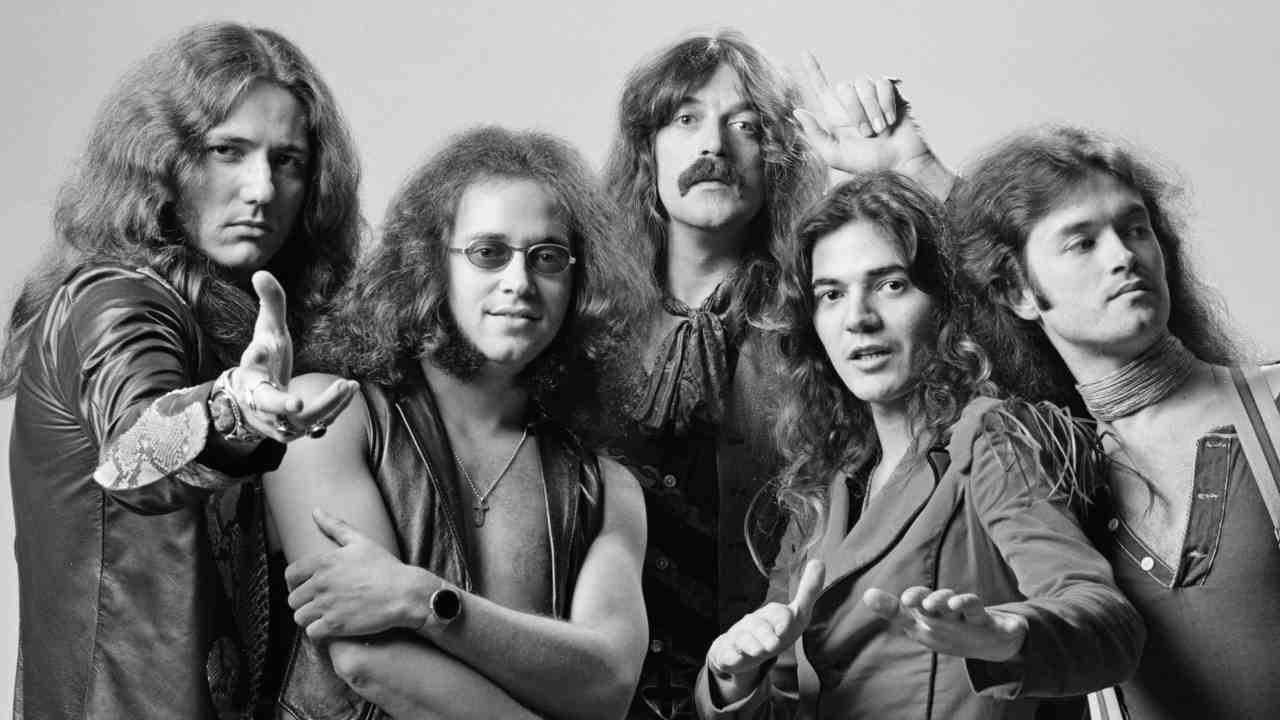
Despite being the architect of Purple’s shift away from their Brit-centric, heavy rock roots, Hughes says he cannot be held accountable for Blackmore’s departure. “You know what Ritchie used to be like. Regardless of whether it was Purple or Rainbow, he always lusted after change. Change the singer, change the keyboard player, whatever. I’m not sure if it was my ‘funky shoeshine music’ [Blackmore’s infamous description of Purple’s direction at that time – Ed.] that was the last straw. Was it my fault that Ritchie left Deep Purple? Absolutely not.
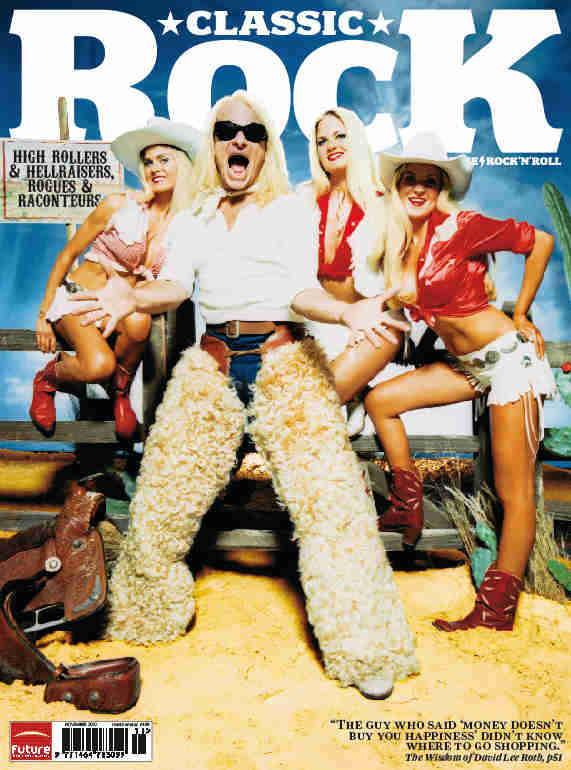
“Let me make this clear,” he continues, “Coverdale and I were listening to the same kind of music in 1974. I’d go into his hotel room and he’d be playing Steely Dan, Marvin Gaye, Kool And The Gang, anything to do with black music. It wasn’t just me. Even Paicey was doing it. Purple weren’t a – quote, unquote – heavy metal band who had to follow a formula. We were evolving. But Ritchie wanted to go and play his Bach-infused music, which was a 100 miles from were I was going.”
So, with Blackmore off to scale the Silver Mountain with Ronnie James Dio in Rainbow, Purple’s future looked bleak – and then some.
“It was over,” Lord states plainly. “Totally finished. I was sitting in California thinking: ‘This is alright, I’ve got a few bob in the bank, it’s been a good run. I’ll just sit here and look at the Pacific and think about what to do next.’”
Hughes: “I was the one who probably wanted to leave more than anyone else. It was David Bowie who convinced me to stay. Bowie was staying at my house in Los Angeles, and when I got back from Paris he told me: ‘No, you’ve got to see this out, you’ve got to find somebody completely different to Blackmore. You’ve got to go out and discover somebody new.’ Otherwise I probably would have gone, if it hadn’t been for Bowie.”
Coverdale: “When it was official that Ritchie was out, I immediately wanted to make a solo album – and the players I knew I wanted to work on it with me were the rest of Purple. My disappointment was in not changing the band name. I remember the meeting with the remaining band members and management following Ritchie’s announcement. I suggested we call ourselves Good Company, Purple or The Deeps. I believed, and still do believe, that without Blackmore – his quirky character, personality, inspiration and influence – it couldn’t be Purple. Ritchie was the creative driving force of the band. Of course, I was shot down in flames.
“Ultimately,” he sighs, “it was a business decision to continue as Deep Purple. Ah, well…”
Coverdale drew up a short-list of possible replacement guitarists. His No.1 choice was Jeff Beck; No.2 was Rory Gallagher. “Without even pursuing Jeff everyone said that after Ritchie it would be like jumping out of the frying pan into the fire, personality-wise. Who knows?”
As far as Gallagher was concerned, Coverdale was “in a local band, way back when, and I’d opened for Rory when he fronted Taste at a blues club called the Argus Butterfly in Peterlee in the north of England. I thought him an exceptional musician, a great white blues interpreter and a very decent bloke. However, for whatever reason, Rory wasn’t discussed any further. I still think it could have been interesting.”
Purple ended up auditioning Humble Pie’s Clem Clempson, but “there wasn’t the ‘magic’, the ‘something’ that was necessary,” Coverdale opines.
Hughes: “Clem played wonderfully, but he didn’t have – and no disrespect to Clem at all, because he’s an exceptionally good guitar player – he didn’t have that wow. You needed a big, iconic character to fill Blackmore’s boots.”
Lord: “God bless Clem, but it just wasn’t right. A delightful man but he wasn’t floating anybody’s boat, not in the context of Deep Purple.”
Coverdale says Clempson thought he had the job in the bag. “Unfortunately, the impression I got was that he was led to believe he already had the gig, which was not the case. Most of us were surprised when he came in to rehearsals in LA. There is no question he was an extremely capable musician, just not what Purple needed. I remember hearing his exemplary work on Cozy Powell’s solo outing, Over The Top, many years later, when he really came into his own. Fabulous playing. Still, it was the right decision to look for another. I do regret Clem’s understandable confusion. Not one of our better moves. Low on the ‘courage’ scale.”
Having been rebuffed on the Beck and Gallagher fronts, Coverdale offered up his third alternative: a hotshot, but relatively unknown, American called Thomas Richard Bolin. The aforementioned “beautiful boy” with multi-coloured hair; the geisha-booted stranger in glam pants.
“Yes, Tommy was the third name on my wish list,” Coverdale confirms. “I had no idea who he was or what he looked like. White, black, orange… I just liked what I heard.”
Lord: “David told me: ‘Look, you’ve got to listen to this.’ And you have to remember Coverdale had a thick northeastern accent back then, like Brian Johnson of AC/DC. He sounds like Roger Moore today! Anyway, he gave me a copy of jazz drummer Billy Cobham’s album, Spectrum, which featured Bolin on guitar. He asked me to listen to the opening track, Quadrant 4. I put it on and my mouth dropped open. ‘Wow,’ I remember saying, ‘that is astonishing playing.’ At that point only I agreed to participate in another audition. I got the feeling that if I had said no, they would have gone ahead anyway.”
Coverdale: “No one had heard of Tommy, so I played them some bits of Spectrum and collectively they gave the thumbs up. Our US office was contacted to track Tommy down, which didn’t prove so easy – no Twitter in those days. We eventually found him living down the road from me in Malibu.
“Funnily enough,” he adds, “Tommy and I were at an LA party sometime after he’d joined and someone put Spectrum on. I was enthusiastically pointing out certain licks that had really impressed me. Reluctantly, Tommy brought to my attention that a lot of what I thought was him was actually Jan Hammer playing revolutionary synth. Fortunately, I was somewhat insulated with Scotch and Coke and avoided significant embarrassment.”
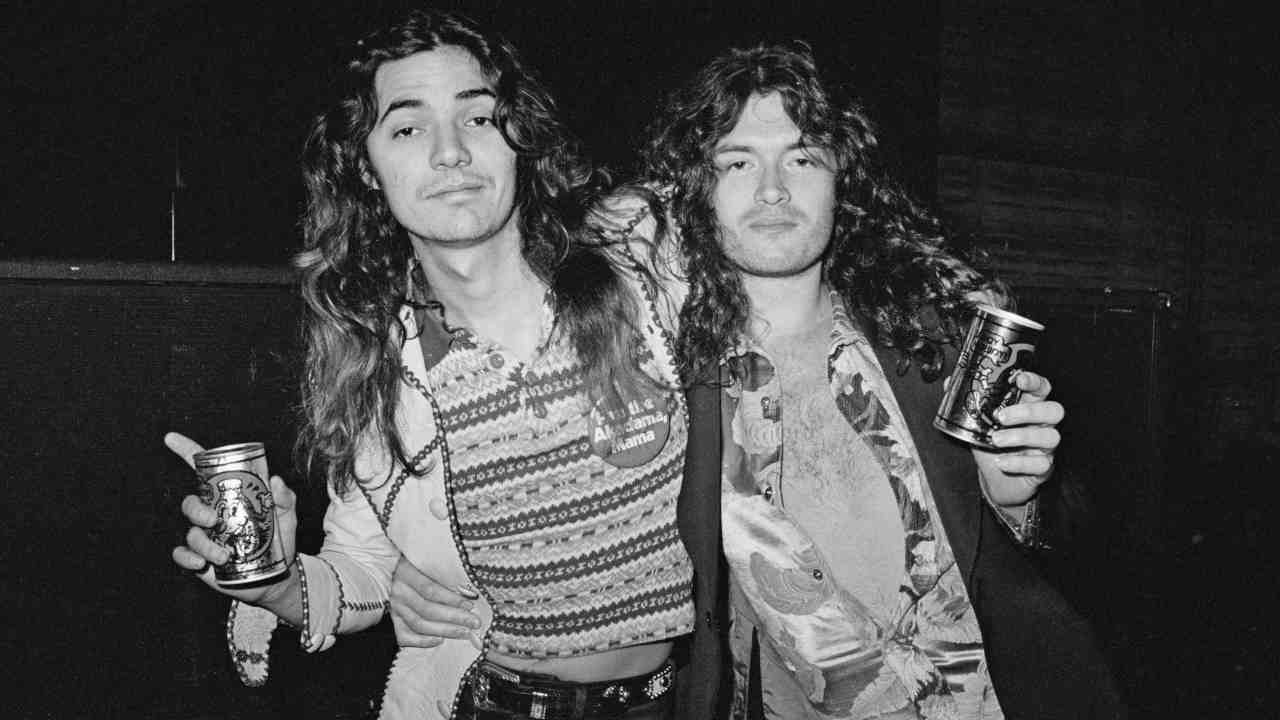
Bolin’s Purple audition took place at Pirate Sound Studios in Hollywood. Previously used by Columbia Pictures for movie production, the huge building had been taken over by sound engineer Robert Simon, nicknamed ‘Captain California’. Purple were one of the first bands to book time at Pirate Sound, having previously used Simon as a soundman at their live shows.
Coverdale: “We were all sitting around, snotty, superstar-like, cool and unwelcoming. Tommy walks up to the huge wall of Marshalls, turns them all up to 11 and starts blasting the fuck out of the place. We all jumped up and grabbed our appropriate musical weapons and started jamming along.”
Lord: “Tommy completely energised what was a rather distraught and headless chicken.”
Hughes: “We knew Tommy was the right man for the job after the fifth or sixth bar of the first jam. He had the tone, star quality, swagger, composure, bravado… Call it arrogance, call it eccentricity, he had it in spades. He wasn’t a Ritchie Blackmore clone and he had an essence, an aura about him that told us he needed to be in this band.”
Purple offered Bolin the job there and then. The Mk IV line-up of the band was up and running – even with those geisha boots on.
Hughes: “We didn’t do that whole horrible waiting game, the way we did with Coverdale – that was a bit silly; we made David wait about a week. No, we offered Tommy the gig on the spot.”
There was one problem, however: Bolin had a career of his own going on. After a spell in The James Gang – appearing on the albums Bang (1973) and Miami (1974) – the Sioux City, Iowa-born six-stringer was readying a solo album called Teaser.
Hughes: “I can’t lie to you, it was a slight problem. It might’ve been more on the management side of things. Tommy had his own manager, a tough guy, a hardhead from Denver called Barry Fey. He was a real old-school, Peter Grant type. I think the management of Purple definitely had problems with that.”
Lord: “Tommy’s solo career was nascent, as it was his actually joining Purple that kick-started Teaser. I don’t think he was front-page news. Certainly in the music community he was, everybody recognised him as a young whiz kid, but he was pretty much unknown to the public at large. Still, I can understand why there might’ve been a bit of tension within Purple concerning Tommy’s, shall we say, extracurricular activities.”
Regardless, with Bolin in tow, Purple decamped to Musicland, a recording studio in Munich, to record a new album. Musicland was established by Italian record producer, songwriter and performer Giorgio Moroder in the late 1960s. The studio itself was situated underneath the Arabella Hotel, where Purple had booked a suite of rooms. This tightly knit, work-rest-and-play environment quickly took on the nature of a pressure cooker. Bolin’s serious drug problems abruptly became apparent and, not to be outdone, Glenn Hughes experienced what he calls his “Munich meltdown”.
“Tommy had big bag of blow flown in from Boulder, Colorado. I got a key from the manager of the hotel and went into Tommy’s room and found the stash. I dipped into the bag and took a couple of grams out of it, but after a line or two in my room I felt so guilty I called [personal assistant] Nicky Bell and gave it back to him. Then I had a bit of a meltdown. Cocaine psychosis took over – it’s a condition similar to paranoid schizophrenia.”
Lord: “Everybody sniffed a bit of coke in those days. People were almost doing it in restaurants, it was that prevalent. It was no big deal as far as I was concerned. But with Glenn, it was obvious that he was on a downward spiral. Then I became aware that Tommy was right there with him… indeed, they were both having the times of their lives. Or so they thought. But what I didn’t know was that Tommy also had a problem with heroin.”
Hughes continues: “I freaked out. I rugby-tacked Nicky Bell in the lobby of the hotel and hit him. I also attacked another member of our crew, Ossy Hoppe, in front of paying customers in a restaurant. The next thing I knew I was on the plane home. The only way they could stop me going crazy was to send me back to England. I was ill and needed to be taken care of by a doctor.
“But it wasn’t just me,” he adds. “Everybody was gabbling. Other people were having their own problems with their own demons – wine, women, gambling, whatever. They had their own secrets. Some people were drinking too much, some people were smoking dope… but Glenn Hughes is the one, I guess, that people pointed the finger at.”
Coverdale: “All I will say is that my distractions were very different from Glenn’s. They were of a more physical nature.”
Hughes was sent packing with Purple’s new album only 80 per cent complete.
Coverdale: “Tommy had to play some bass and we both sang as well as we could in the circumstances. No replacement whatsoever for the ol’ bluebird, but we really had no choice.”
You can hear Bolin’s dulcet tones on The Dealer, where he sings the passage: ‘In the beginning all you wanted/Was the calm before the storm/If the bluebird plays the eagle/He finds his song will turn to stone.’
Hmm… it’s interesting that Cov refers to Hughes as “ol’ bluebird”, isn’t it?
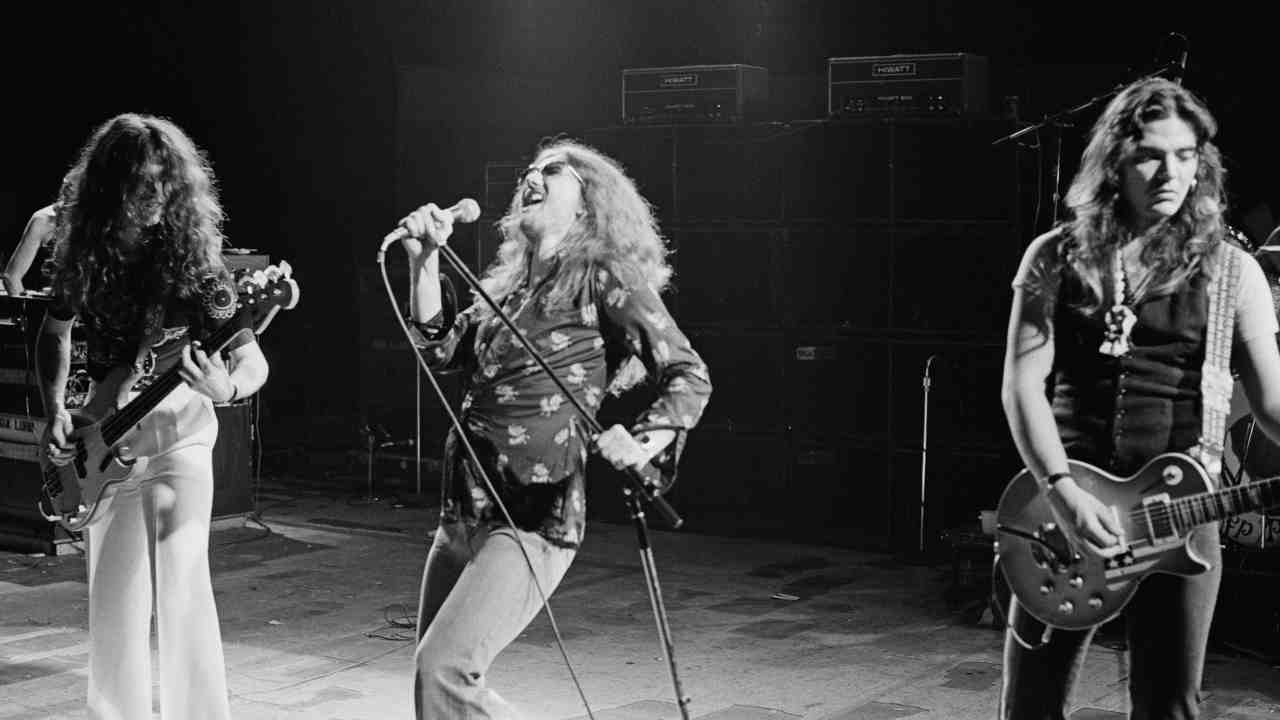
Despite its traumatic birth, the album that would be titled Come Taste The Band has tons to recommend it. Reviewing it in the October 25, 1975 edition of Sounds, I wrote: ‘Tommy Bolin has injected a heavy dose of fresh energy – I haven’t heard Purple play with such boyish enthusiasm in a long time. His guitar work is succinct, immensely fluid but never overbearing. Indeed, CTTB displays a much freer, give-and-take musical attitude than even several early Purple albums.’
However, I offered the telling proviso: ‘CTTB stands head and shoulders above your average mundane rock release, but at the same time the question must be asked: does it show enough potential and promise to ensure the new Purple a safe passage into the future? Time will tell.’
One of CTTB’s standouts is You Keep On Moving, a song that dates back to the sessions for Burn, the 1974 album that debuted Purple’s Mk III line-up.
“It was written in Redcar when David was living above a Wimpy bar,” Hughes laughs. “True story. I went up there for a weekend and we wrote You Keep On Moving before we went to Clearwell Castle to do Burn. This was right at the start of Purple, when David had just finished working in that menswear shop selling loon pants.”
When Purple took to the road to promote CTTB, no one was prepared for the backlash against Tommy Bolin from the pro-Blackmore camp.
Lord: “No, I certainly wasn’t ready for it. I figured there would be some resistance, but I didn’t expect to see as much as we did. What surprised me was the resistance in America. I heard many, many sustained shouts of ‘Blackmore!’ there, as many as I began to hear in Europe when we went there.
“I have to say though, on a more positive note, that Tommy very often won people over on the night. He was a considerable guitarist; let’s not forget that. His abilities were astonishingly strong and when he was on a good night, he was up there with the best that I’ve played with. But unfortunately those nights were few and far between. Well, maybe that’s being unfair. Let’s just say there weren’t enough of them. Tommy was like the little girl with the curl. When he was good he was good he was very, very good and when he was bad he was horrid.”
Coverdale: “Ritchie was a founder member and an immense imprint on what people recognise as Deep Purple. It was tough on Tommy, but he’d experienced a similar situation on a smaller scale in The James Gang, where he followed hard on the heels of Joe Walsh.” [Bolin actually replaced Dominic Troiano in The James Gang]
Quality release CTTB may be, but to this day Jon Lord is insistent that it should not be regarded as a Deep Purple album.
“I don’t think it’s a Purple record at all. I have to say that I took very little interest at the time in anything to do with the creative process. Had it not been for David and Glenn and Tommy in particular, I don’t think the album would’ve got made. Glenn, in his lucid moments, was a powerhouse. Tommy seemed to thrive on being stoned. A lot of the groove and the drama were down to Tommy.
“Occasionally something fired me up. You Keep On Moving is one of the great Purple tracks and a couple of others I find exceptionally good. I listened to the album recently and it’s fabulous, it’s one of the really great 1970s rock albums. But to me, it’s not a Purple album.”
Hughes: “I totally agree with Lordy. When I listen to some of those tracks… it’s kind of like Bad Company through a funny mirror.”
By contrast, David Coverdale regards CTTB as being very much part of the Purple canon.
“I must say everyone in Purple had a very loud voice and opinion when it came to the song material we recorded and played, so there was ample opportunity to say no if you didn’t agree. Also, when you have that particular collective – Paice, Lord, Hughes and myself – how could it not be a Purple album?”
Originally published in Classic Rock issue 151, October 2010
Geoff Barton is a British journalist who founded the heavy metal magazine Kerrang! and was an editor of Sounds music magazine. He specialised in covering rock music and helped popularise the new wave of British heavy metal (NWOBHM) after using the term for the first time (after editor Alan Lewis coined it) in the May 1979 issue of Sounds.


